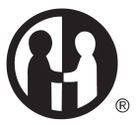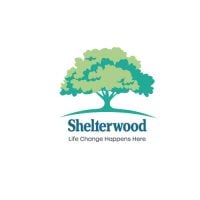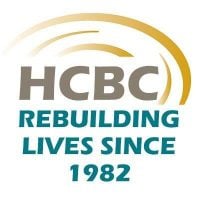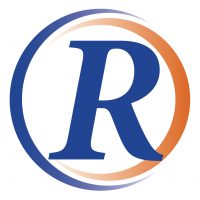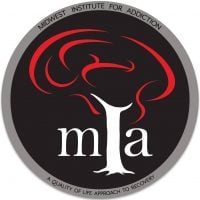Central State MHC - Lexington
Drug Rehab Center in Lexington, Missouri
Central State MHC - Lexington is a substance abuse and addiction treatment center located in Lexington, Missouri that offers a comprehensive range of services, including medication-assisted treatment, individual and group counseling, family therapy, and education and support groups, all tailored to the needs of each client.
About This Missouri Facility
Central State MHC - Lexington is a reputable addiction treatment facility located in Lexington, Missouri. Established in 1984, this facility has been committed to providing comprehensive treatment for individuals suffering from alcoholism, drug addiction, and dual diagnosis. Central State MHC - Lexington offers a range of levels of care to address the specific needs of their clients, including aftercare support, drug rehab, intensive outpatient, outpatient, and residential programs.
As an accredited facility with a state license, Central State MHC - Lexington adheres to stringent standards of quality and professionalism. The dedicated team of professionals at this facility is passionate about helping individuals on their journey to recovery. By combining evidence-based practices with personalized care, Central State MHC - Lexington aims to provide effective and lasting results for their clients. With their affiliation with Central States MHC, clients can trust that they are receiving treatment from a reputable and established organization in the field of mental health and addiction services.
Central State MHC - Lexington offers a diverse range of services to assist individuals struggling with addiction and substance abuse. Their aftercare support program ensures that clients receive continued support and guidance even after completing their primary treatment. The residential program provides a safe and supportive environment for individuals who require a more structured and immersive approach to recovery. For those who may not require residential care, outpatient and intensive outpatient programs offer flexibility while still providing essential treatment. With a focus on dual diagnosis, Central State MHC - Lexington acknowledges and addresses the mental health aspect of addiction, ensuring comprehensive and integrated care for their clients.
Genders
Ages
Modality
Additional
Accreditations
State License
Conditions and Issues Treated
Levels of Care Offered at Central State MHC - Lexington
This center offers a variety of custom treatment tailored to individual recovery. Currently available are Aftercare Support, Drug Rehab, Intensive Outpatient, Outpatient, Residential, with additional therapies available as listed below.
The Intensive Outpatient Program at Central State MHC - Lexington is for those who need intensive care but would rather get it in the comfort of their own home. The treatment programs vary in duration and intensity and can be tailored to suit the individual’s needs. IOP helps the patient to live at home and gradually get back to their routine life.
Daily trips to the hospital that provides the treatment include intensive outpatient services (IOP). The patients gradually get back to their everyday lives. IOP benefits the most when the patients have a supportive family member or friend who can encourage them in their recovery.
Individuals struggling with drug addictions can get help from several treatment options, including inpatient and outpatient programs. Outpatient drug treatment programs can also provide patients with different levels of care, usually depending on the patient’s degree of addiction.
At an outpatient program in Lexington, a patient will attend a recovery program during the day and return home in the evening. Suppose a patient is struggling with drug addiction. In that case, an outpatient program can serve as an effective transition point during the recovery process.
Residential treatment programs are those that offer housing and meals in addition to substance abuse treatment. Rehab facilities that offer residential treatment allow patients to focus solely on recovery, in an environment totally separate from their lives. Some rehab centers specialize in short-term residential treatment (a few days to a week or two), while others solely provide treatment on a long-term basis (several weeks to months). Some offer both, and tailor treatment to the patient’s individual requirements.
Aftercare is a part of drug rehabilitation. It is also known as “post-treatment support.” Aftercare programs are available for addicts after they complete drug rehab. It is often the final step in the recovery process. The goal of aftercare is to ensure that addicts maintain their achievements in rehab and do not relapse. Professionals generally provide aftercare (including addiction therapists, physicians, social workers, psychologists) and involve individual and group therapy sessions.
Therapies & Programs
Individual therapy is a critical component of addiction recovery. It allows the patients to go deep into their core issues and discover how to handle those problems better. Therapy can be conducted in individual sessions as well as group settings. In individual therapy for addiction, the patient meets with their therapist one-on-one to focus on the underlying issues. This allows patients to open up and discuss personal topics they may not feel comfortable discussing in a group setting. This type of therapy can help develop solutions specific to each patient, which helps speed up the recovery process.
Family therapy is a crucial part of drug treatment and getting sober. It is one of the most effective ways to help addicts stay on the path to long-term sobriety. When a drug addict decides that they want to try and get sober, it takes the support of every person they love to succeed. It can be incredibly difficult for loved ones to watch an addict go through the pain and suffering of withdrawal, but by being there with them and supporting them, they can help to make sure that the addiction never returns.
One of the most important parts of family therapy is the relapse prevention plan. During treatment, therapists and doctors will often sit down with the addict and their family to develop a plan in case the addict ever feels like they want to use again. This plan should involve steps the addict and family can take together to prevent them from relapsing in the future. An addict’s family can play a vital part in helping them to avoid relapse because they can spot the warning signs and help them get back on track before it becomes too much of a problem.
Group therapy helps prevent addicts from feeling isolated or unique in their situation by offering a sense of comfort and fellowship. It also creates a forum for addicts to build their support systems and learn from each other. The group therapy sessions at Central State MHC - Lexington occur in a group setting rather than one-on-one to create a safer, controlled environment where addicts feel comfortable.
Dialectical Behavior Therapy was developed in the 1980s to treat chronically suicidal individuals. It is a cognitive-behavioral therapy that combines strategies derived from Zen Buddhism, such as mindfulness training. DBT has been adapted for use with other types of psychiatric problems, including substance abuse and personality disorders. DBT aims to help patients change their thinking and behavior, instead of relying on medication.
Cognitive Behavioral Therapy (CBT) is a common therapeutic approach to help drug addicts. It teaches addicts new ways of thinking and behaving so that they can avoid relapse. There are several forms of CBT used in drug rehabilitation centers.
Cognitive Restructuring helps addicts identify faulty, negative thinking so that they can work together with the therapist to find healthier ways of thinking, resulting in better decision-making.
Cognitive Behavioral Therapy for Addiction uses the principles of CBT to help treat addiction. It focuses on specific aspects of each person’s thinking, feeling, physiology, and behavior. It aims to identify specific problems in these areas and create a personalized treatment strategy.
Rational Emotional Behavior Therapy aims to help you understand your emotions and how they affect your behaviors and addiction. It breaks down the addiction and behaviors behind it. Those who complete the program will identify their feelings and reactions and positively change their behaviors.
Payment Options Accepted
For specific insurance or payment methods please contact us.
Central States MHC Associated Centers
Discover treatment facilities under the same provider.
- Central State MHC - Blue Springs in Blue Springs, MO
- Central State MHC - Lees Summit in Lees Summit, MO
- Central State MHC - Richmond in Richmond, MO
- Central State MHC - Warrensburg in Warrensburg, MO
- Central State MHC - Sedalia in Sedalia, MO
Learn More About Central States MHC Centers
Additional Details
Specifics, location, and helpful extra information.
Lexington, Missouri 64067 Phone Number(660) 259-2907 Meta DetailsUpdated November 25, 2023
Staff Verified
Patient Reviews
There are no reviews yet. Be the first one to write one.
Lexington, Missouri Addiction Information
Opioid-related overdoses in Missouri have been increasing steadily for the past three decades. In 2018, more than 1,130 people in Missouri died from opioid abuse. Methamphetamines and marijuana abuse have surpassed opioid abuse in Missouri. Missouri is the number 1 methamphetamine manufacturer in the country with more than 27 meth labs per 100,000 people.
Treatment in Nearby Cities
- Reeds Spring, MO (170.6 mi.)
- Rogersville, MO (149.9 mi.)
- Bloomfield, MO (267.7 mi.)
- La Belle, MO (123.2 mi.)
- Kennett, MO (292.2 mi.)
Centers near Central State MHC - Lexington
The facility name, logo and brand are the property and registered trademarks of Central State MHC - Lexington, and are being used for identification and informational purposes only. Use of these names, logos and brands shall not imply endorsement. RehabNow.org is not affiliated with or sponsored by Central State MHC - Lexington.
